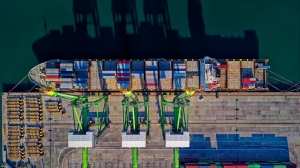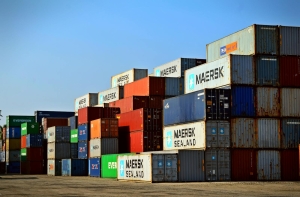Risk Management for a Logistics Company in Nigeria
Risk Management for a Logistics Company in Nigeria
Introduction
In Nigeria’s dynamic logistics sector, effective Risk Management for a Logistics Company in Nigeria is crucial to safeguarding operations, maintaining profitability, and ensuring long-term success. With the ever-evolving challenges such as supply chain disruptions, regulatory changes, and fluctuating market conditions, logistics companies must be proactive in identifying and mitigating risks that could hinder their growth. This is where a well-defined risk management strategy becomes invaluable. At Business Depot Consulting, we specialize in helping logistics companies navigate these risks with tailored strategies designed to protect both their operational and financial interests.
Definition of Risk Management for a Logistics Company in Nigeria
Risk management in the context of a logistics company involves identifying, assessing, and prioritizing risks that could affect the business. These risks can range from operational challenges like delays in deliveries or inventory shortages, to financial and compliance risks, including fluctuating fuel prices or changes in tax laws. A well-structured risk management process involves developing strategies to minimize the likelihood and impact of these risks. This proactive approach helps logistics companies in Nigeria stay competitive, compliant, and resilient in an increasingly complex and uncertain market.
Understanding Risk Management for a Logistics Company in Nigeria
Understanding Risk Management for a Logistics Company in Nigeria is essential for maintaining operational continuity and competitive advantage in a volatile environment. The logistics industry, particularly in Nigeria, faces a range of risks that can impact everything from supply chain efficiency to financial stability. Understanding these risks requires a clear grasp of the various internal and external factors that influence logistics operations.
At its core, risk management is about foresight and preparation. It involves not only identifying potential risks but also actively planning for how to mitigate or manage them should they arise. In the Nigerian context, this means considering factors such as infrastructure challenges, regulatory shifts, security issues, and global economic trends that can disrupt local operations.
Logistics companies need to be equipped with the knowledge to assess the probability and potential impact of risks and take proactive steps to reduce their exposure. This understanding allows logistics providers to ensure that their operations run smoothly, reduce costs associated with disruptions, and maintain a positive reputation with clients.
By embracing a comprehensive risk management strategy, logistics companies in Nigeria can effectively navigate uncertainties, protect their bottom line, and remain resilient in an ever-changing market landscape.
We understand that Risk Management for a Logistics Company in Nigeria is a critical element to ensure the smooth operation and long-term success of logistics businesses. The logistics industry in Nigeria faces unique challenges, including infrastructural issues, regulatory changes, and unpredictable market conditions. That’s why our expert team is committed to offering tailored solutions that help you identify, assess, and manage risks effectively. Here’s a detailed approach to Risk Management for a Logistics Company in Nigeria:
Risk Identification
Risk identification is the cornerstone of any effective Risk Management for a Logistics Company in Nigeria. Without knowing where the risks lie, it becomes challenging to mitigate them.we use a comprehensive process to identify potential risks that may disrupt your logistics operations:
- Identification of Potential Risks: We start by identifying a wide range of risks that could impact your logistics operations. These include:
Operational Risks: These are risks that arise from day-to-day operations, such as transportation delays, vehicle breakdowns, or inefficient inventory management.
Financial Risks: This includes risks such as fluctuating fuel prices, currency devaluation, or changes in cost structures that could affect your profitability.
Strategic Risks: Changes in market trends, competitor movements, or shifts in customer demand can be classified as strategic risks that need to be addressed for long-term sustainability.
Compliance Risks: These risks arise when your business fails to meet local and international regulatory standards, which could result in fines, penalties, or loss of reputation. - Through a thorough process, we identify all the risks that could potentially affect your logistics operations in Nigeria, providing you with a clear picture of your business’s risk landscape.
- Analysis of Internal and External Factors: After identifying the risks, we move on to a deeper analysis of both internal factors (such as workforce efficiency, operational processes, and asset reliability) and external factors (such as political instability, infrastructural challenges, and market fluctuations). For example, road infrastructure problems or unstable fuel supply chains could severely affect logistics operations in Nigeria, and understanding these external factors is vital.
- Consideration of Industry-Specific Risks: The logistics industry in Nigeria is subject to unique risks such as supply chain disruptions, cargo theft, and delays caused by customs or border checks. These risks, while specific to the logistics sector, can have far-reaching effects. we ensure that industry-specific risks are factored into your overall Risk Management for a Logistics Company in Nigeria strategy to develop a holistic and tailored plan.
Risk Assessment
Once risks are identified, the next crucial step in Risk Management for a Logistics Company in Nigeria is assessing the likelihood and potential impact of each risk. This helps prioritize the most critical risks and ensure that resources are allocated to areas that need immediate attention.
- Evaluation of Likelihood and Potential Impact: After identifying risks, we assess how likely they are to occur and the potential damage they could cause. For instance, while a supply chain disruption may not happen frequently, its impact could be significant, affecting customer deliveries, inventory levels, and revenue generation. By evaluating these factors, we can gauge which risks could have the highest impact on your logistics operations and plan accordingly.
- Prioritization of Risks Based on Severity and Probability: All risks are not created equal, and as part of our Risk Management for a Logistics Company in Nigeria, we prioritize them. High-severity risks, such as regulatory fines or supply chain failures, are given top priority, while lower-severity risks are tracked and mitigated over time. Prioritization ensures that your focus is on the most pressing risks that can have the most immediate and devastating impact on your business.
- Development of Risk Matrix: To help visualize and communicate risk priorities, we create a risk matrix that categorizes risks based on both their probability of occurrence and potential impact. This matrix acts as a visual guide to help your business understand which risks need immediate action and which are less urgent but still important to monitor.
Operational Risk Management
In Risk Management for a Logistics Company in Nigeria, operational risks play a significant role in determining the efficiency and profitability of your logistics business. Operational risks, if not managed properly, can lead to delays, inefficiencies, and loss of customer trust.we offer tailored solutions to ensure operational risks are minimized:
- Management of Risks Related to Logistics Operations: The logistics industry in Nigeria involves complex operations, from transportation to warehousing to inventory management. We work closely with you to assess risks in each area and develop strategies to minimize their impact. For example, managing the risk of vehicle breakdowns by implementing a robust vehicle maintenance schedule, or improving the security of warehouses to reduce the risk of theft.
- Implementation of Standard Operating Procedures (SOPs) and Quality Control Measures: A significant part of Risk Management for a Logistics Company in Nigeria is the creation of Standard Operating Procedures (SOPs). These procedures standardize processes across your business, ensuring consistency and reducing the chance of errors. For example, implementing SOPs for inventory management helps streamline operations, reduces human error, and increases efficiency. Additionally, we introduce quality control measures to ensure that your operations meet the highest standards and comply with industry regulations.
- Training and Development of Employees to Mitigate Human Error: Human error is one of the leading causes of operational disruptions in logistics. To mitigate this risk, we provide training programs that empower your employees with the knowledge and skills they need to perform their jobs effectively. Whether it’s training in safety protocols, equipment handling, or customer service, our programs reduce mistakes and ensure a more reliable operation.
By incorporating these practices into your business’s daily activities, we ensure that operational risks are addressed, and your logistics company can function seamlessly.
Supply Chain Risk Management
In Risk Management for a Logistics Company in Nigeria, managing supply chain risks is crucial, as these can have a significant impact on the smooth flow of goods and services, we specialize in identifying and mitigating risks in your supply chain to ensure your operations remain efficient and resilient:
- Identification and Mitigation of Risks in the Supply Chain: We help you identify risks within your supply chain, such as supplier insolvency, material shortages, or delays caused by transport disruptions. By evaluating these risks, we work with you to develop strategies to minimize their impact, ensuring that your supply chain continues to operate smoothly even during unforeseen challenges.
- Development of Contingency Plans for Supply Chain Disruptions: We understand that disruptions in the supply chain are inevitable. That’s why we work with you to create contingency plans that outline alternative approaches to mitigate these disruptions. These plans may include identifying backup suppliers or rerouting transportation options in the event of an unexpected delay or shortage.
- Diversification of Suppliers and Logistics Partners: One of the most effective strategies to mitigate supply chain risks is diversification. We help you expand your network by identifying additional suppliers and logistics partners to reduce your dependence on a single source. This strategy ensures you are not vulnerable to a single point of failure, thus strengthening the resilience of your supply chain.
Security Risk Management
Security risks, such as cargo theft, hijacking, or terrorism, pose serious threats to logistics operations in Nigeria. We help you manage these risks to ensure the safety of your goods, assets, and employees:
- Management of Security Risks: We help identify and address security risks, such as cargo theft, hijacking, and terrorist attacks, which can have devastating effects on your logistics operations. We work with you to implement measures that reduce the likelihood of such incidents occurring, ensuring that your operations remain secure.
- Implementation of Security Measures: To protect your goods in transit and at rest, we assist in implementing robust security measures, such as GPS tracking, surveillance systems, and physical security protocols. These systems not only help deter theft and hijacking but also provide real-time monitoring of your assets, giving you peace of mind and the ability to respond quickly to incidents.
- Collaboration with Law Enforcement and Security Agencies: Partnering with local law enforcement and security agencies is crucial for maintaining security in the logistics industry. We guide you in establishing strong relationships with these agencies, ensuring swift action in case of security breaches and fostering a safer operating environment for your business.
Compliance Risk Management
In Nigeria, compliance risks are a significant concern for logistics companies, especially with the constantly evolving regulatory environment. we help your business navigate these risks by developing compliance strategies that ensure your operations meet all local and international requirements:
- Management of Compliance Risks: Regulatory non-compliance can lead to costly fines, operational shutdowns, or loss of reputation. We help you identify and manage compliance risks related to areas like customs clearance, safety regulations, and environmental standards to ensure your business avoids penalties and stays on the right side of the law.
- Development of Policies and Procedures to Ensure Regulatory Compliance: We assist you in developing comprehensive policies and procedures that adhere to the regulations set by local and international authorities. By aligning your operations with legal requirements, we help safeguard your business against regulatory scrutiny and reduce the risk of non-compliance.
- Training and Awareness Programs for Employees: It’s not enough to simply develop policies – your employees must be aware of them and follow them. As part of Risk Management for a Logistics Company in Nigeria, we offer training programs that educate your workforce on the importance of compliance and the specific regulations that apply to your logistics operations. This ensures that everyone in your company is on the same page and follows best practices for regulatory adherence.
Financial Risk Management
In Risk Management for a Logistics Company in Nigeria, managing financial risks is essential to maintaining a stable and profitable business, we provide solutions to help you navigate the various financial risks that can impact your logistics operations:
- Management of Financial Risks: Currency fluctuations and payment defaults are common financial risks in the logistics industry. We help you identify and manage these risks by developing strategies to mitigate their effects. Whether it’s dealing with currency exchange volatility or ensuring prompt payments from clients, we work with you to safeguard your financial stability.
- Implementation of Financial Controls and Hedging Strategies: To protect your business from financial uncertainty, we implement financial controls and hedging strategies that stabilize your cash flow. We advise you on tools like forward contracts or other financial instruments that allow you to hedge against currency fluctuations and ensure predictable revenue streams.
- Development of Cash Flow Management Plans: Cash flow is the lifeblood of any business, and we help you create effective cash flow management plans that balance income and expenses. By closely monitoring cash flow, we ensure that your logistics company has the financial flexibility to manage day-to-day operations while preparing for unexpected financial challenges.
Business Continuity Planning
In Risk Management for a Logistics Company in Nigeria, having a well-structured business continuity plan (BCP) is crucial to minimizing the impact of disruptions and ensuring your operations continue even in the face of adversity.We assist in developing and maintaining effective business continuity strategies:
- Development of Business Continuity Plans (BCPs): We work with you to create comprehensive business continuity plans that detail how to respond to disruptions, whether they’re caused by natural disasters, equipment failure, or other unforeseen events. A solid BCP ensures that your logistics operations can continue running smoothly despite any challenges.
- Identification of Critical Business Processes and Assets: In order to protect your business, it’s important to identify the key processes and assets that are essential to your logistics operations. We help you pinpoint these critical elements and establish procedures to protect them, ensuring minimal downtime and disruption if an incident occurs.
- Regular Testing and Updating of BCPs: Business continuity is not a one-time task but an ongoing process. We ensure that your BCPs are regularly tested and updated, so you’re always prepared for new challenges. Our approach includes conducting drills and revising plans to reflect changes in your operations and emerging risks.
Risk Monitoring and Review
Effective Risk Management for a Logistics Company in Nigeria is an ongoing process that requires constant monitoring and refinement. We ensure that your risk management strategies remain up-to-date and effective by providing continuous oversight:
- Ongoing Monitoring and Review of Risk Management Strategies: We understand that risks evolve, which is why we offer ongoing monitoring of your risk management strategies. Our team conducts regular reviews to assess the effectiveness of current strategies and make necessary adjustments to keep your logistics operations secure.
- Identification of Emerging Risks and Updating of Risk Matrix: New risks can emerge at any time, especially in a dynamic market like logistics. We help you stay ahead by identifying emerging risks and updating your risk matrix to reflect these changes. By constantly adapting your risk management approach, we ensure that your company is well-positioned to handle future challenges.
- Continuous Improvement of Risk Management Processes: At Business Depot Consulting, we believe in continuous improvement. We regularly assess and refine your risk management processes to ensure they remain robust and efficient. Through regular feedback and analysis, we help you stay proactive in mitigating risks, ensuring long-term stability and success for your logistics operations.
Governance and Accountability
Effective Risk Management for a Logistics Company in Nigeria requires strong governance and accountability structures to ensure that risk management practices are consistently applied across the organization, we help you establish clear governance frameworks that hold everyone accountable for managing risks:
- Establishment of Clear Roles and Responsibilities for Risk Management: A well-defined structure is essential to ensure that risk management is effectively executed at all levels of your organization. We assist you in assigning clear roles and responsibilities for risk management, ensuring that each team member knows their part in identifying, mitigating, and monitoring risks.
- Development of Risk Management Policies and Procedures: Strong policies and procedures provide the foundation for your risk management framework. We help you develop comprehensive policies that guide your logistics operations in identifying and addressing risks. These procedures ensure that your staff can effectively manage risks, even when new challenges arise.
- Accountability and Reporting Structures for Risk Management: Clear accountability structures are key to ensuring that risks are appropriately managed and reported. We help you set up reporting mechanisms that track risk management activities, enabling you to review risk outcomes, make informed decisions, and hold relevant parties accountable for their roles in mitigating risks.
Training and Awareness
Training and awareness are vital components of Risk Management for a Logistics Company in Nigeria. Ensuring that your employees understand the risks they face and how to manage them is crucial to the success of your risk management efforts. we provides tailored solutions to enhance your team’s capabilities:
- Development of Training Programs for Employees on Risk Management: To help your team effectively manage risks, we design customized training programs that educate employees on the different types of risks within the logistics sector. These programs equip them with the tools and knowledge they need to proactively manage risk in their day-to-day tasks.
- Awareness Creation on Risk Management Policies and Procedures: It’s not enough to just have policies in place – your employees must be aware of them and understand their role in following these guidelines. We assist in creating awareness around your risk management policies and procedures to ensure all employees are aligned and take proactive steps in mitigating risks.
- Regular Updates and Refresher Training for Employees: Risk management is an ongoing process, and as such, your team needs continuous support and education. We offer regular updates and refresher training programs to ensure that your employees remain informed about evolving risks, new policies, and any changes in procedures. This keeps them engaged and prepared to handle any emerging threats.
Technology and Risk Management
Technology plays a critical role in modern Risk Management for a Logistics Company in Nigeria. Leveraging the right technology tools can help you mitigate risks, monitor operations, and improve decision-making. we guides you in integrating cutting-edge technology into your risk management strategy:
- Utilization of Technology to Mitigate Risks: Technology, such as GPS tracking systems and predictive analytics, can provide real-time insights that help you manage logistics risks more effectively. We work with you to identify and implement the right technological solutions that allow you to track shipments, anticipate potential issues, and mitigate risks before they escalate.
- Implementation of Digital Solutions to Enhance Risk Management: Digital solutions such as risk management software, automated reporting systems, and cloud-based platforms can greatly enhance the way you monitor and manage risks. We assist you in implementing these solutions to streamline your risk management processes and improve overall efficiency.
- Continuous Monitoring of Technological Advancements: Technology is constantly evolving, and it’s important to stay ahead of the curve. Business Depot Consulting keeps a close eye on technological advancements and integrates the latest tools into your risk management practices. This helps ensure that your logistics company remains competitive while continuously improving its risk management capabilities.
Stakeholder Engagement
Effective Risk Management for a Logistics Company in Nigeria involves active engagement with all relevant stakeholders.We understand that collaboration with stakeholders is key to mitigating risks and maintaining a transparent, resilient business. Here’s how we help you manage stakeholder engagement:
- Engagement with Stakeholders (e.g., Customers, Suppliers, Regulators) on Risk Management: We facilitate open communication with your key stakeholders, including customers, suppliers, and regulatory bodies, regarding risk management practices. This ensures that everyone is on the same page and committed to a shared goal of minimizing risks in your logistics operations.
- Collaboration with Stakeholders to Mitigate Risks: Risk management is not just an internal effort; it requires collaboration with external partners. We assist in forming strategic partnerships with stakeholders to jointly address and mitigate risks. For example, working closely with suppliers to ensure timely deliveries or partnering with regulators to stay compliant with local laws.
- Development of Communication Plans for Risk-Related Issues: Effective communication is essential when managing risk. We help you develop communication plans that outline how to inform stakeholders about emerging risks, ongoing risk mitigation efforts, and the impact of any incidents. Clear communication helps maintain trust and reduces the impact of risks on your logistics operations.
Incident Management
In Risk Management for a Logistics Company in Nigeria, responding to incidents quickly and efficiently is essential to minimize their impact. we assists in developing robust incident management frameworks to ensure your logistics company can respond promptly to unexpected events:
- Development of Incident Management Plans and Procedures: We help you develop comprehensive incident management plans that define clear steps for addressing various types of incidents, such as supply chain disruptions, cargo theft, or equipment failures. These plans ensure that your logistics company is prepared to respond quickly and effectively to mitigate damage.
- Establishment of Incident Response Teams: A dedicated team is crucial for managing incidents promptly. We assist you in establishing incident response teams with defined roles and responsibilities. These teams are equipped with the knowledge and tools to handle crises efficiently, minimizing operational downtime and ensuring business continuity.
- Regular Review and Update of Incident Management Plans: An incident management plan must remain dynamic and adaptable. We work with you to regularly review and update your plans based on past experiences, emerging risks, and changes in your logistics operations. This ensures that your incident response is always aligned with the current business environment and risk landscape.
Continuous Improvement
The landscape of Risk Management for a Logistics Company in Nigeria is constantly changing, and it’s crucial to have a process for continuous improvement, we provide solutions that ensure your risk management processes are always evolving and adapting to new challenges:
- Regular Review and Assessment of Risk Management Processes: We conduct regular assessments of your existing risk management processes to identify any weaknesses or areas for improvement. This ongoing review process ensures that your risk management framework stays relevant and effective as your business and the industry evolve.
- Identification of Areas for Improvement: As part of our continuous improvement approach, we help you identify areas where your risk management practices can be strengthened. Whether it’s improving your incident response time, enhancing employee training, or refining your financial risk management strategy, we guide you in making the necessary adjustments.
- Implementation of Changes and Updates to Risk Management Processes: Based on our assessments and feedback, we help you implement changes and updates to your risk management processes. These updates ensure that your logistics company is always ahead of potential risks, improving your ability to manage and mitigate risks effectively as new challenges arise.
Risk Management Framework
A comprehensive Risk Management for a Logistics Company in Nigeria requires a structured and adaptable framework that aligns with industry best practices, we help you design and implement a robust risk management framework that guides your organization in identifying, assessing, and mitigating risks effectively:
- Development of a Risk Management Framework that Aligns with Industry Best Practices: We assist in the creation of a customized risk management framework that follows established industry standards and practices. This ensures that your logistics company’s approach to risk management is comprehensive, effective, and aligned with global best practices.
- Establishment of Clear Risk Management Policies and Procedures: A well-structured policy is essential for managing risks systematically. We help you define clear policies and procedures that govern your approach to risk management, ensuring consistency and reliability in risk mitigation efforts across all levels of your organization.
- Continuous Monitoring and Evaluation of the Framework: Risk management is an ongoing process that requires continuous oversight. We support your organization in regularly monitoring and evaluating your risk management framework, ensuring it remains responsive to emerging risks and aligned with evolving business goals.
Regulatory Compliance
Navigating the complex regulatory environment is a crucial aspect of Risk Management for a Logistics Company in Nigeria, we help you stay compliant with relevant laws and regulations while ensuring that your logistics operations are not exposed to legal or financial risks:
- Compliance with Relevant Laws and Regulations: We ensure that your logistics company adheres to all local, national, and international regulations. This includes understanding and complying with the Nigerian regulatory framework, such as customs and tax laws, transportation regulations, and environmental guidelines, to prevent compliance-related risks.
- Monitoring of Regulatory Changes and Updates: Laws and regulations can change frequently. We provide ongoing monitoring of regulatory updates to keep your logistics operations compliant. By staying ahead of regulatory changes, your company can avoid costly penalties and minimize risks related to legal non-compliance.
- Adaptation of Risk Management Processes to Ensure Compliance: As regulations evolve, so too should your risk management processes. We help you adapt your existing frameworks to ensure they stay in line with any new legal or regulatory requirements, ensuring that compliance risks are continuously mitigated.
Risk Culture
A strong Risk Management for a Logistics Company in Nigeria goes beyond policies and procedures—it involves fostering a culture where risk awareness is embedded into every level of the organization. At Business Depot Consulting, we assist you in building a proactive risk culture that encourages employees to take an active role in identifying and managing risks:
- Development of a Risk-Aware Culture within the Organization: We work with you to create a corporate culture where risk management is a shared responsibility. This culture helps ensure that everyone in your organization, from leadership to operational staff, is actively engaged in identifying and addressing potential risks.
- Encouragement of Employees to Identify and Report Risks: We help establish systems and communication channels that encourage employees to identify, report, and address risks. Empowering your workforce to speak up about risks ensures that problems are detected early, preventing them from escalating into larger issues.
- Recognition and Reward of Employees who Contribute to Risk Management: To reinforce the importance of risk management, we recommend recognizing and rewarding employees who make significant contributions to identifying and mitigating risks. This motivates staff to stay engaged with your risk management processes and fosters an environment of continuous improvement.
Risk Management Tools
We understand that the right Risk Management for a Logistics Company in Nigeria are essential for identifying, assessing, and mitigating risks effectively. We help you implement and develop the best tools to manage risks and continuously improve your processes:
- Utilization of Risk Management Tools (e.g., Risk Assessment Templates, Risk Matrices): We assist your company in implementing proven risk management tools such as risk assessment templates and risk matrices. These tools help in the systematic identification, evaluation, and prioritization of risks, enabling your logistics operations to remain efficient and secure.
- Development of Customized Tools to Meet Specific Needs: Every logistics company has unique challenges. That’s why we offer customized risk management tools tailored to your specific operational needs. Whether it’s developing specialized risk matrices or creating unique assessment templates, we provide tools that align with your business’s risk profile and objectives.
- Continuous Evaluation and Improvement of Risk Management Tools: Risk management tools need to evolve alongside your business and the risks you face. We support you in regularly evaluating and refining your risk management tools to ensure they remain effective and relevant to emerging threats and operational changes. This proactive approach helps in maintaining the accuracy and functionality of your tools over time.
Review and Evaluation
To ensure continuous improvement in Risk Management for a Logistics Company in Nigeria, regular reviews and evaluations of your risk management strategies are essential. we guide you through a process of constant reflection and enhancement to ensure that your risk management efforts remain robust and effective:
- Regular Review and Evaluation of Risk Management Processes: We assist you in conducting regular reviews of your risk management processes, ensuring that they are functioning as intended. This includes analyzing past incidents, reviewing risk assessment results, and checking whether your strategies remain aligned with your logistics company’s objectives and changing external conditions.
- Assessment of Effectiveness of Risk Management Strategies: A critical aspect of any risk management plan is its effectiveness. We help you assess the performance of your strategies to determine whether they are mitigating risks successfully. If risks are not being adequately addressed, we identify areas that require refinement and provide actionable solutions to improve your approach.
- Identification of Areas for Improvement and Implementation of Changes: Risk management is not a one-time effort—it requires constant adaptation and enhancement. We guide you in identifying areas for improvement in your current risk management practices. Once areas of improvement are recognized, we help you implement changes that optimize your strategies, ensuring continuous risk mitigation and business resilience.
Best Practices for Risk Management for a Logistics Company in Nigeria
Effective Risk Management for a Logistics Company in Nigeria is crucial to ensure smooth operations, minimize disruptions, and maintain customer satisfaction. By adopting industry best practices, your logistics company can identify, assess, and mitigate risks efficiently, we provide expert guidance on these best practices that are tailored to the unique challenges faced by logistics companies in Nigeria. Below are key best practices you can implement to enhance your risk management processes:
- Comprehensive Risk Assessment
- Identify and Prioritize Risks: Start by identifying all potential risks, including operational, financial, strategic, and compliance-related risks. Use tools like risk assessment templates and risk matrices to evaluate the likelihood and impact of these risks on your logistics operations. Prioritize them based on severity and probability to allocate resources effectively.
- Regularly Update Risk Assessments: The logistics landscape in Nigeria is constantly evolving. Ensure that you update risk assessments periodically to account for changes in the regulatory environment, market conditions, and technological advancements.
- Robust Operational Risk Management
- Implement Standard Operating Procedures (SOPs): Establish clear and standardized operating procedures across all logistics operations, such as transportation, warehousing, and inventory management. SOPs help reduce the likelihood of errors and streamline workflows, ensuring greater consistency and efficiency.
- Employee Training and Development: Human error is a major risk factor in logistics operations. Regularly train employees on risk management protocols, industry best practices, and emerging risks. Equip your team with the knowledge and skills needed to handle operational challenges and minimize mistakes.
- Effective Supply Chain Management
- Diversify Suppliers and Partners: Relying on a single supplier or logistics partner increases the risk of disruptions in the supply chain. To mitigate this risk, diversify your suppliers and partners, ensuring that you have alternative sources available if one fails to deliver.
- Develop Contingency Plans: Prepare for potential supply chain disruptions by developing contingency plans. Identify critical suppliers, materials, and partners, and outline alternative strategies to ensure continuity in case of unforeseen events like material shortages or supplier insolvency.
- Strengthen Security Measures
- Implement Advanced Security Systems: Cargo theft, hijacking, and terrorism are significant concerns for logistics companies in Nigeria. To minimize these risks, invest in advanced security measures such as GPS tracking, surveillance systems, and real-time monitoring of shipments.
- Collaborate with Security Agencies: Collaborating with local law enforcement and security agencies can help improve overall security in your logistics operations. Establish strong relationships with these entities to ensure a swift response in the event of a security breach.
- Ensure Regulatory Compliance
- Stay Updated on Regulations: The regulatory environment in Nigeria is subject to frequent changes. Stay updated on new laws and regulations that impact your logistics operations, such as customs, import/export rules, and environmental standards. Regularly review your compliance status and adjust your strategies accordingly.
- Implement Compliance Training: Educate your team on the importance of compliance and equip them with the knowledge needed to adhere to regulatory requirements. This minimizes the risk of non-compliance and the potential penalties that can arise from it.
- Financial Risk Management
- Implement Financial Controls: Logistics companies face financial risks such as currency fluctuations, payment defaults, and unforeseen expenses. Establish robust financial controls and monitoring systems to track cash flow, manage budgets, and reduce financial exposure.
- Use Hedging Strategies: In cases where foreign currency fluctuations may affect your logistics costs, implement hedging strategies to minimize the impact of these risks.
- Technology and Innovation
- Leverage Technology for Risk Mitigation: Use technological tools such as predictive analytics, real-time tracking, and automated supply chain management software to improve visibility and control over your logistics operations. Technology helps identify potential risks early, allowing for proactive measures.
- Continuous Monitoring of Technological Advances: The logistics sector is rapidly evolving, with new technologies emerging regularly. Stay informed about the latest technological innovations and integrate them into your risk management processes to stay ahead of risks and improve efficiency.
- Incident Management and Response
- Develop Incident Management Plans: Establish a clear incident management plan that outlines how your company will respond to unexpected events, such as accidents, supply chain disruptions, or security breaches. Ensure that employees are familiar with these procedures and know their roles during an incident.
- Regularly Review and Update Plans: Incident management plans should not be static. Regularly review and update these plans to ensure they reflect current risks, operational changes, and best practices.
- Continuous Improvement and Feedback Loops
- Ongoing Review of Risk Management Processes: Risk management is an ongoing process. Regularly review and evaluate the effectiveness of your risk management strategies to ensure they are addressing emerging threats. Use feedback from employees, stakeholders, and industry trends to refine and improve your risk management practices.
- Establish a Culture of Continuous Improvement: Encourage a culture of risk awareness and continuous improvement within your organization. Regularly engage your team in discussions about risks, solutions, and process improvements to create a proactive risk management environment.
- Stakeholder Engagement and Communication
- Engage with Stakeholders on Risk Management: Actively involve stakeholders, including customers, suppliers, and regulators, in your risk management efforts. Regularly communicate your risk management strategies and collaborate with stakeholders to mitigate risks.
- Develop Clear Communication Channels: In times of risk or crisis, clear and effective communication is vital. Develop communication plans for both internal and external stakeholders to ensure that everyone is informed and aligned during risk-related incidents.
Key Takeaways for Risk Management for a Logistics Company in Nigeria:
- Comprehensive Risk Assessment is Crucial: Identifying, assessing, and prioritizing potential risks—operational, financial, compliance, and strategic—is the first step in developing a robust risk management plan. Regularly updating your risk assessments helps your logistics company stay ahead of emerging risks.
- Operational Excellence Reduces Risk: Implementing Standard Operating Procedures (SOPs) and regular training programs for your employees can significantly mitigate human error and enhance the efficiency of your operations. This minimizes the risks associated with logistics activities like transportation, warehousing, and inventory management.
- Supply Chain Diversification and Contingency Planning: Diversifying your suppliers and logistics partners ensures you’re not overly dependent on a single source. Developing strong contingency plans for potential supply chain disruptions is also essential for maintaining continuity during emergencies.
- Security Measures Are Essential: Address security risks, such as cargo theft and hijacking, by investing in security technologies like GPS tracking and surveillance systems. Collaborating with law enforcement and security agencies enhances your ability to respond effectively to security incidents.
- Regulatory Compliance is Non-Negotiable: Stay updated on Nigeria’s dynamic regulatory environment to avoid penalties and disruptions. Ensure that your team is well-versed in compliance requirements, and regularly review your procedures to stay aligned with new laws and regulations.
- Leverage Technology for Risk Mitigation: Utilize advanced technologies such as predictive analytics, real-time tracking systems, and automated supply chain management tools to monitor risks proactively. This allows for faster identification and mitigation of potential threats.
- Incident Management Plans Are Vital: Develop clear incident management plans to ensure a swift and coordinated response to unexpected events. Regularly review and update these plans to keep them relevant to your current operations and emerging risks.
- Continuous Improvement is Key: Regularly review your risk management strategies to assess their effectiveness. Encourage a culture of risk awareness and continuous improvement, involving employees and stakeholders in the process.
- Effective Stakeholder Communication: Engage with your stakeholders—customers, suppliers, regulators—about risk management strategies. Clear communication ensures everyone is informed and aligned during potential risk events.
By implementing these best practices, your logistics company in Nigeria will be better positioned to manage risks, safeguard operations, and maintain a competitive advantage in an ever-evolving market. Business Depot Consulting is here to guide you in building a resilient risk management framework tailored to your business needs.
Frequently Asked Questions (FAQs) for Risk Management for a Logistics Company in Nigeria:
- What is Risk Management for a Logistics Company in Nigeria?
- Risk management for a logistics company in Nigeria involves identifying, assessing, and addressing potential risks that could disrupt operations, such as supply chain disruptions, security threats, regulatory compliance issues, and financial instability. This process helps ensure that logistics operations remain smooth and efficient, minimizing downtime and financial loss.
- Why is Risk Management Important for Logistics Companies?
- Effective risk management is crucial for logistics companies as it helps mitigate potential disruptions, reduce operational costs, protect assets, and ensure regulatory compliance. It also improves business continuity, customer satisfaction, and overall efficiency.
- What Are the Common Risks in Logistics Operations in Nigeria?
- Common risks include supply chain disruptions (e.g., material shortages or supplier insolvency), security threats (e.g., cargo theft, hijacking), regulatory compliance issues (e.g., customs clearance), and financial risks (e.g., payment defaults, currency fluctuations). Logistics companies also face operational risks related to warehousing, inventory management, and transportation.
- How Do You Assess Risks in Logistics?
- Risks are assessed by identifying potential threats, evaluating the likelihood and impact of those risks, and prioritizing them based on severity and probability. A risk matrix is often used to visualize and categorize these risks, helping prioritize resources and mitigation efforts.
- What Are the Key Components of a Risk Management Plan for a Logistics Company?
- A risk management plan typically includes risk identification, risk assessment, operational risk management, security risk management, supply chain risk management, regulatory compliance, and business continuity planning. It also involves ongoing monitoring, employee training, and regular updates to ensure relevance.
- How Can Technology Help in Risk Management for Logistics Companies?
- Technology plays a vital role in risk management by providing tools such as real-time tracking systems, predictive analytics, and automated supply chain management. These technologies help monitor risks, detect potential threats early, and enable quicker responses to emerging challenges.
- What Are the Best Practices for Managing Risks in Logistics?
- Best practices include conducting regular risk assessments, developing contingency plans, diversifying suppliers, implementing security measures, ensuring regulatory compliance, leveraging technology, and creating a strong risk-aware culture within the company.
- What is Supply Chain Risk Management, and Why is It Important?
- Supply chain risk management involves identifying and mitigating risks within the supply chain, such as supplier insolvency, material shortages, and transportation delays. It is essential for maintaining operational continuity and reducing the likelihood of disruptions that could affect customer satisfaction.
- How Can Security Risks be Managed in Logistics?
- Security risks, such as cargo theft and hijacking, can be managed through measures like GPS tracking systems, surveillance cameras, securing transportation routes, and collaboration with law enforcement agencies. Ensuring secure storage facilities and training employees on security protocols also helps mitigate risks.
- How Often Should a Logistics Company Review Its Risk Management Strategy?
- A logistics company should regularly review its risk management strategy—ideally at least annually or whenever significant changes occur in operations, regulations, or the market environment. Ongoing monitoring ensures that emerging risks are identified, and the strategy remains effective.
- How Can Employees Be Involved in Risk Management?
- Employees should be trained on risk management processes, encouraged to identify and report potential risks, and involved in regular updates and refresher training. Building a risk-aware culture within the organization is key to preventing and addressing risks effectively.
- What Are the Key Benefits of Effective Risk Management in Logistics?
- Effective risk management helps logistics companies reduce operational downtime, minimize losses, enhance customer satisfaction, maintain compliance with regulations, and ensure long-term business continuity. It also enables quicker recovery from disruptions, enhancing overall resilience.
By addressing these common questions, we ensure that logistics companies in Nigeria understand the importance of risk management and can effectively implement strategies to safeguard their operations.
Challenges and Opportunities in Risk Management for a Logistics Company in Nigeria:
Challenges in Risk Management for a Logistics Company in Nigeria:
- Inadequate Infrastructure:
- Challenge: Poor infrastructure in many parts of Nigeria can lead to delays, increased costs, and greater risk exposure. This includes inadequate roads, ports, and unreliable power supply, which may disrupt logistics operations.
- Solution: Companies can invest in technology to optimize route planning and use alternative logistics methods, such as rail or air freight, to mitigate infrastructure challenges.
- Security Risks:
- Challenge: Security issues, such as cargo theft, hijacking, and vandalism, are persistent concerns for logistics companies operating in Nigeria. Criminal activities can disrupt transportation and damage goods.
- Solution: Implementing advanced security measures like GPS tracking, surveillance cameras, and partnerships with local security forces can mitigate these risks.
- Regulatory Compliance:
- Challenge: The constantly changing regulatory landscape in Nigeria, including customs rules and import/export restrictions, can create compliance risks for logistics companies.
- Solution: Keeping up-to-date with regulations, investing in training programs for employees, and leveraging compliance management software can help manage this challenge.
- Economic Instability:
- Challenge: Nigeria’s fluctuating exchange rates, inflation, and unstable financial environment can affect operational costs, pricing strategies, and financial planning.
- Solution: Companies can hedge against currency fluctuations, establish strong financial controls, and diversify their revenue streams to reduce exposure to economic volatility.
- Supply Chain Disruptions:
- Challenge: Unforeseen disruptions, such as supplier insolvency, material shortages, or natural disasters, can have significant impacts on the supply chain, leading to delays and cost increases.
- Solution: Diversifying suppliers, creating contingency plans, and developing strong relationships with local and international partners can reduce the impact of supply chain disruptions.
- Operational Inefficiencies:
- Challenge: Inadequate management of logistics operations, such as inventory control, warehouse management, and transportation, can lead to operational inefficiencies and increased costs.
- Solution: Streamlining operations through automation, adopting best practices in inventory management, and training staff to reduce human error can help alleviate inefficiencies.
- Political Instability:
- Challenge: Political unrest or instability in certain regions of Nigeria may disrupt logistics operations, block routes, or delay shipments.
- Solution: Logistics companies can monitor political climates, build flexibility into their logistics strategies, and have contingency routes and alternative plans in place.
Opportunities in Risk Management for a Logistics Company in Nigeria:
- Leveraging Technology for Risk Mitigation:
- Opportunity: The increasing availability of digital tools such as predictive analytics, real-time tracking systems, and automation can help mitigate a wide array of risks in logistics, from theft to operational inefficiencies.
- Action: Implementing tracking systems, predictive maintenance, and automation tools can help optimize supply chains, reduce human error, and improve overall efficiency.
- Strengthening Security Measures:
- Opportunity: Technological advancements provide new ways to enhance security in logistics operations. Solutions like GPS tracking, RFID tags, and biometric verification can increase cargo safety and reduce the risk of theft or hijacking.
- Action: Investing in modern security technologies and collaborating with security agencies can build a more secure environment for goods transportation.
- Building Resilience through Diversified Supply Chains:
- Opportunity: Diversifying suppliers, logistics partners, and transport routes helps logistics companies manage risk better and avoid dependence on a single source.
- Action: By diversifying supply chains and exploring different transportation methods (road, rail, air, and sea), companies can create a more resilient logistics network that can withstand disruptions.
- Enhanced Risk Culture:
- Opportunity: Developing a risk-aware culture within the organization can lead to better identification and mitigation of risks. Encouraging employees to participate in risk management processes helps create a proactive approach to risk.
- Action: Implementing regular training and awareness programs and fostering a culture where employees at all levels are encouraged to identify risks will help in effectively managing potential threats.
- Partnerships and Collaboration with Stakeholders:
- Opportunity: Collaborating with key stakeholders, such as suppliers, customers, regulatory bodies, and security agencies, can help logistics companies effectively mitigate risks.
- Action: Strengthening relationships with key stakeholders ensures better communication, coordination, and collaboration during times of risk, helping minimize the impact of disruptions.
- Regulatory Compliance as a Competitive Advantage:
- Opportunity: Staying ahead of regulatory changes can provide a competitive advantage. Being a compliant company builds trust with customers and regulators and reduces the likelihood of penalties or disruptions.
- Action: Logistics companies can invest in compliance management software, stay updated on regulatory changes, and train their workforce to ensure they meet all legal requirements, making them a trusted player in the industry.
- Sustainability and Green Logistics:
- Opportunity: Sustainable logistics practices, such as using energy-efficient vehicles, reducing waste, and adopting green supply chains, can help reduce operational costs and improve the company’s reputation.
- Action: Implementing eco-friendly logistics practices is not only beneficial for the environment but also enhances the company’s image, attracting environmentally-conscious customers.
- Adapting to Changing Market Demands:
- Opportunity: The growing demand for faster delivery and e-commerce has created new logistics opportunities. Logistics companies can tap into the growing market by optimizing their services to meet these demands.
- Action: Companies can invest in faster, more efficient delivery models (e.g., last-mile delivery solutions) to meet the needs of e-commerce customers, increasing their market share.
We understand the dynamic nature of Risk Management for a Logistics Company in Nigeria. While the industry faces numerous challenges, including infrastructure issues, security concerns, and regulatory complexities, it also presents abundant opportunities for growth and improvement.
By embracing technological solutions, diversifying supply chains, and building a risk-aware culture, logistics companies can not only mitigate risks but also gain a competitive edge in a rapidly evolving market.
Final Recommendations for Risk Management for a Logistics Company in Nigeria:
- Embrace Technological Integration:
- Recommendation: Adopt advanced technologies such as GPS tracking systems, predictive analytics, and automated warehouse management systems to streamline operations, reduce risks, and improve efficiency. Technology can help mitigate risks such as theft, delays, and operational inefficiencies, while also enhancing decision-making and providing real-time insights into operations.
- Build a Risk-Aware Culture:
- Recommendation: Foster a risk-aware culture within your organization by promoting continuous education and training on risk management. Encourage employees at all levels to identify, report, and mitigate risks, ensuring a proactive approach to risk management. The more informed and engaged your team is, the better positioned your company will be to handle emerging risks.
- Diversify Supply Chain and Logistics Partners:
- Recommendation: Mitigate supply chain risks by diversifying your suppliers, vendors, and transportation routes. This reduces dependency on a single source and enhances your company’s resilience to disruptions. Establish relationships with multiple local and international logistics partners to ensure flexibility in case of unforeseen disruptions.
- Strengthen Security Measures:
- Recommendation: Investing in robust security systems, including surveillance cameras, biometric verification, and real-time tracking, is crucial in mitigating theft, hijacking, and cargo damage. Additionally, collaborate with law enforcement and security agencies to protect your cargo and ensure a secure transport environment.
- Stay Ahead of Regulatory Changes:
- Recommendation: Regularly monitor and adapt to Nigeria’s changing regulatory landscape. Ensure that your company complies with local laws, including customs regulations, environmental standards, and labor laws. By staying compliant, you avoid legal penalties and maintain strong relationships with regulatory authorities.
- Enhance Financial Controls:
- Recommendation: To navigate financial risks such as currency fluctuations, payment defaults, and inflation, establish strong financial controls. Implement hedging strategies, optimize cash flow management, and conduct regular financial audits to minimize the financial impact of external economic factors.
- Develop Business Continuity Plans (BCP):
- Recommendation: Create and regularly update comprehensive business continuity plans (BCP) to ensure the smooth operation of critical business functions during disruptions. Identify potential risks and their impacts on business continuity, and develop contingency plans that are tested periodically to ensure readiness.
- Focus on Compliance Risk Management:
- Recommendation: Develop policies and procedures that ensure your logistics operations comply with all regulatory requirements. This includes staying updated on import/export laws, customs clearance, and transportation safety standards. Proper compliance management will safeguard your company against legal challenges and operational stoppages.
- Monitor and Evaluate Risk Management Strategies:
- Recommendation: Continuously monitor the effectiveness of your risk management strategies. Regularly review your risk management framework, assess the effectiveness of your mitigation efforts, and make necessary adjustments to respond to emerging risks. Use feedback and data analysis to improve your processes over time.
- Invest in Human Resources:
- Recommendation: Train your team to understand and manage risks effectively. Human error is often a significant factor in logistics-related risks, so training and development programs should focus on improving decision-making, operational efficiency, and safety standards.
By following these recommendations, we believe logistics companies in Nigeria can significantly reduce the impact of risks on their operations. Proper risk management is a continuous process that requires adaptability, vigilance, and commitment.
By taking proactive steps, companies can protect their assets, maintain regulatory compliance, improve operational efficiency, and ultimately gain a competitive advantage in the Nigerian logistics sector.
Conclusion
In conclusion, Risk Management for a Logistics Company in Nigeria is not just a necessity but a strategic approach to ensure operational stability, financial health, and long-term success. The logistics industry in Nigeria is subject to a variety of risks, ranging from operational challenges and security threats to regulatory compliance and financial uncertainties. However, with a well-structured risk management plan, companies can navigate these challenges effectively and seize growth opportunities.
By adopting a comprehensive risk management strategy that includes risk identification, assessment, mitigation, and continuous monitoring, logistics companies can safeguard their operations from disruptions and improve overall performance. Leveraging technology, building a risk-aware culture, strengthening security measures, diversifying supply chains, and staying compliant with regulations are all integral steps to minimizing risks and enhancing resilience.
Ultimately, risk management is an ongoing process that requires commitment from all levels of the organization. By implementing best practices, fostering employee engagement, and staying adaptable to emerging risks, logistics companies can not only protect their assets but also create a robust foundation for sustainable growth in the dynamic Nigerian market.
We are dedicated to helping logistics companies in Nigeria develop and execute effective risk management strategies. With our expertise and tailored solutions, you can strengthen your operations, reduce vulnerabilities, and thrive in a competitive industry.
Call To Action
Elevate Risk Management. Unlock Resilience.
Is it time to review, realign, and revamp your company’s approach to risk management?
Let’s help you drive operational stability, compliance, and long-term success through a structured Risk Management for a Logistics Company in Nigeria process tailored to your unique challenges and goals.
Book a discovery call today — and let’s discuss how we can partner with you to enhance your logistics operations and build a more resilient, risk-aware business.
📞 Contact us today: (+234) 802 320 0801, (+234) 807 576 5799
📧 Email: hello@businesscardinal.com
🌐 Visit Us: 5, Ishola Bello Close, Iyalla Off Street, Alausa, Ikeja, Lagos, Nigeria
Enquiry Contact Form












There are no comments